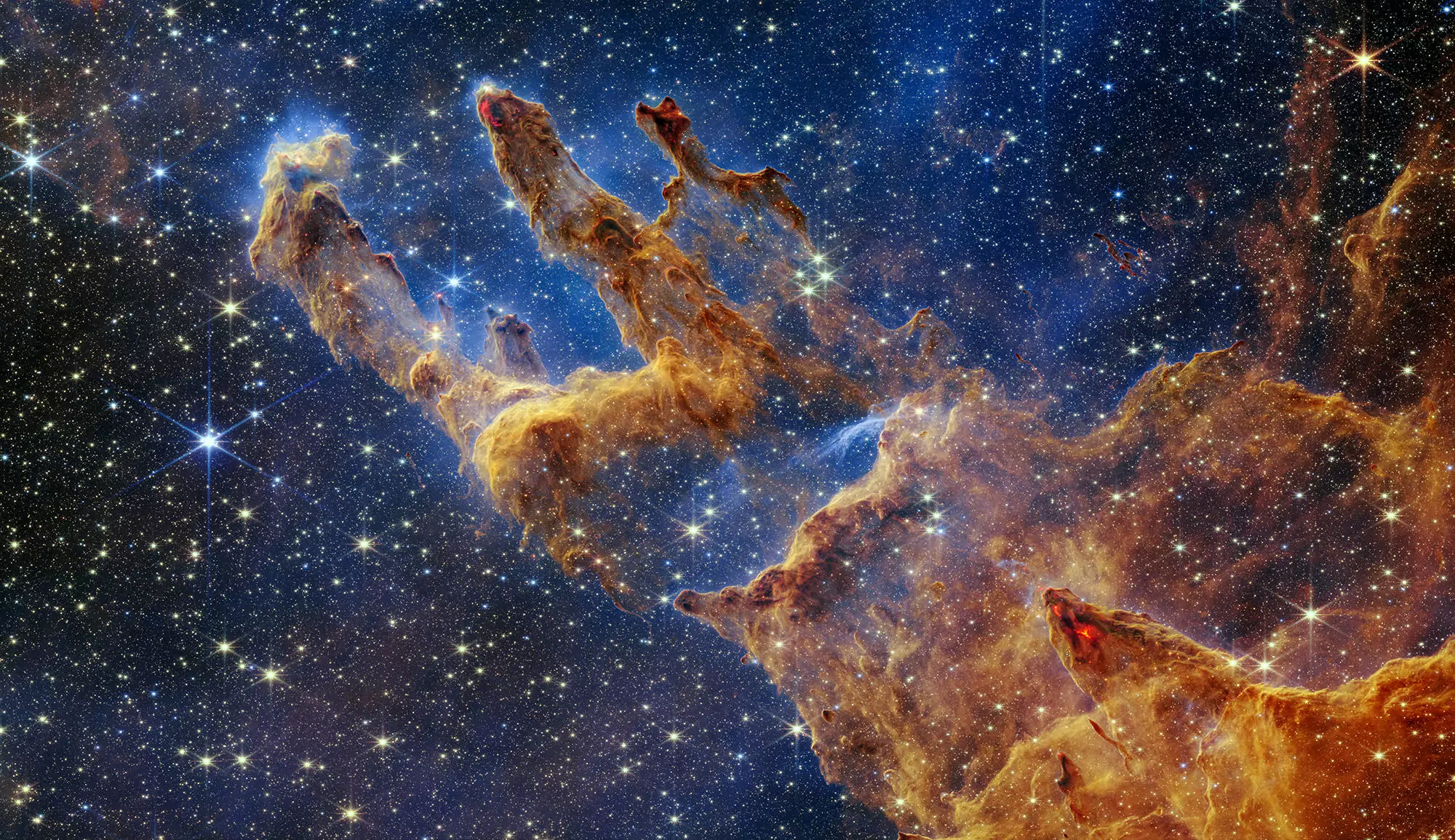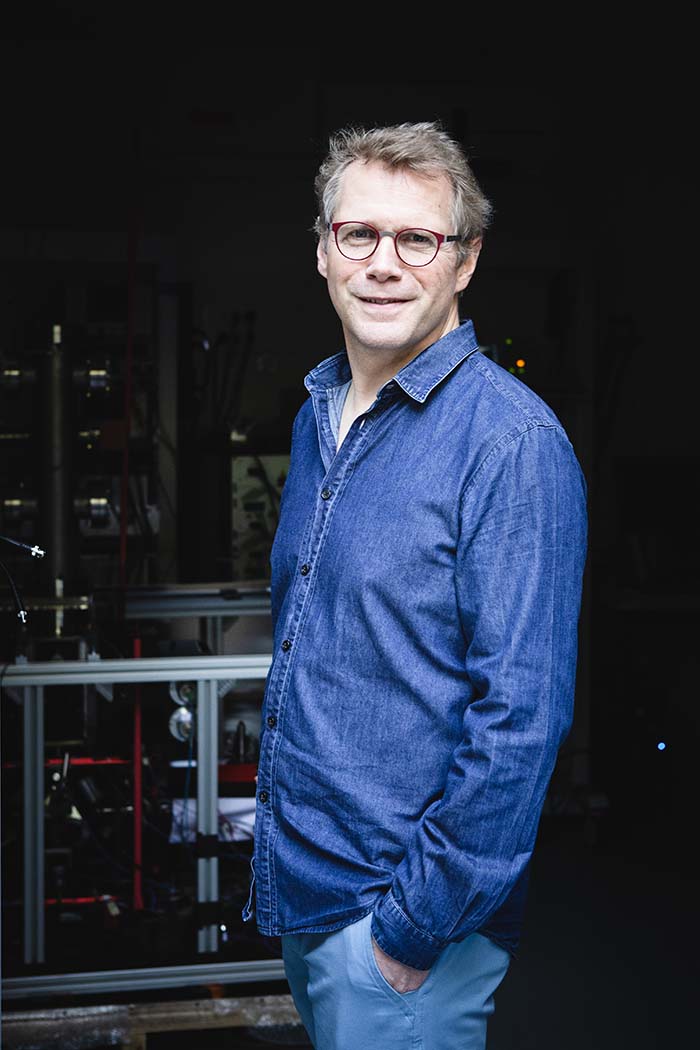Arnaud Landragin, Research Director of the CNRS and Director of the laboratory Systèmes de référence temps-espace de l’Observatoire de Paris - PSL (SYRTE, Observatoire de Paris-PSL / CNRS / Sorbonne University, LNE), uses the quantum principle of wave-corpuscle duality to separate by laser an atom into two waves. Gravity modifies the propagation of these two waves and can then be measured after their recombination.
Ultra-precise sensors for geoscience applications
Thanks to this, Arnaud Landragin designs absolute cold atom gravimeters, which are marketed by the company Muquans, which he co-founded.
He also simplified these systems with a pyramidal reflector : a series of mirrors that allow only two lasers to fulfill the task of six.
These devices find applications in measuring accelerations, gravity fields or, based on their impact on local gravity, for probing fluids and materials present in the subsoil.
"I’ve always tried to enhance even my most fundamental results," Arnaud Landragin stresses.
Thanks to him, the French community is today extremely well positioned in the field of quantum sensing, with the challenge of industrialising a new generation of sensors by 2030 that fully exploit the entanglement properties offered by quantum physics.
Sophie Brouard, Daniel Hissel and Franck Molina are the three other scientists, winners of the CNRS 2020 Innovation Medal :
|
The CNRS Innovation Medal
Created in 2011, the CNRS Innovation Medal recognizes individuals whose outstanding research has led to significant technological, economic, therapeutic and social innovations.
The career paths of these four winners of the CNRS 2020 Innovation Medal illustrate the quality, variety and richness of the research conducted at the CNRS, as well as the diversity of the avenues of development used.
From patent registrations, pre-maturation programmes for innovative projects, relays to the maturation programmes carried out by the SATTs, the RISE programme to support the creation of start-ups, to the creation of joint laboratories with companies of all sizes, "scientists who show a desire to use the results of their research to benefit the socio-economic fabric now benefit from the full range of support measures set up by the CNRS in recent years", says Jean Luc Moullet, CNRS Deputy Director General for Innovation.
The four 2020 laureates also illustrate that research, even very fundamental research, can lead to the creation of companies or be accompanied by transfers to the economic world.

